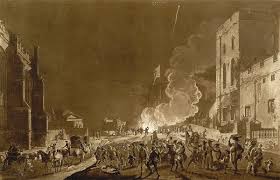Understanding Why Bonfire Night is Celebrated

Introduction
Bonfire Night, also known as Guy Fawkes Night, is celebrated every 5th of November across the United Kingdom. This event marks the foiling of the Gunpowder Plot in 1605, where a group of English Catholics, led by Guy Fawkes, attempted to blow up the Houses of Parliament in a bid to assassinate King James I. The significance of Bonfire Night lies not only in remembering this historical event but also in reflecting on themes of loyalty, tradition, and national identity that resonate with many in contemporary society.
The Origins of Bonfire Night
The historical roots of Bonfire Night trace back to the days following the failed plot, when the English parliament instigated annual celebrations of thanksgiving. Initially, bonfires were lit to celebrate the King’s survival, integrating fireworks as a symbol of the victory over the conspirators. Over time, the celebration evolved, with towns and communities participating in lighting bonfires and setting off fireworks, leading to the modern festivities we associate with Bonfire Night today.
Modern Celebrations
Today, Bonfire Night is marked with a variety of events, including large public bonfires, firework displays, and the traditional burning of effigies of Guy Fawkes. Many communities organise significant public celebrations that draw crowds with food stalls, music, and family-friendly activities. Safety has become an essential feature of the night as guidelines and regulations have been implemented to ensure safety during fireworks displays.
Contemporary Significance
For many, Bonfire Night stands as an opportunity to reflect on the historical tensions between Catholics and Protestants in England. It also serves as a reminder of the importance of political and civil liberties and citizen rights. Though originally rooted in an event of treason and rebellion, modern interpretations of Bonfire Night encompass broader themes of unity and celebration within communities, highlighting the evolution of national identity.
Conclusion
Bonfire Night remains a popular event that captures the imagination and interest of many across the UK. As it continues to evolve, the essence of the celebration—remembering a pivotal moment in British history while fostering community spirit—endures. The night not only serves as a reminder of the past but also encapsulates the cultural fabric of the nation, making it a significant event that many look forward to each year.








